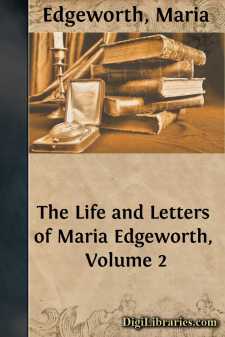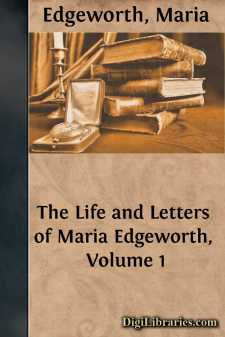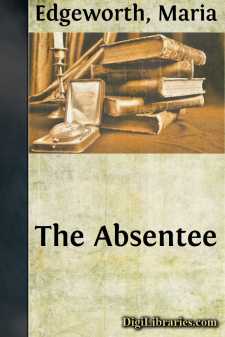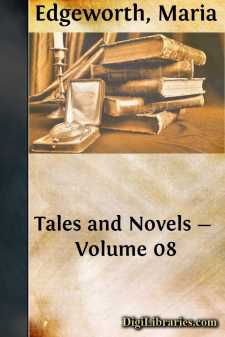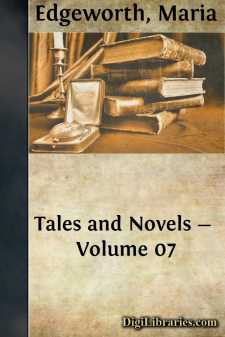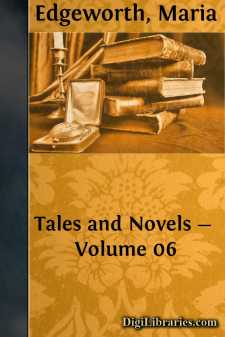Categories
- Antiques & Collectibles 13
- Architecture 36
- Art 48
- Bibles 22
- Biography & Autobiography 813
- Body, Mind & Spirit 142
- Business & Economics 28
- Children's Books 17
- Children's Fiction 14
- Computers 4
- Cooking 94
- Crafts & Hobbies 4
- Drama 346
- Education 46
- Family & Relationships 57
- Fiction 11829
- Games 19
- Gardening 17
- Health & Fitness 34
- History 1377
- House & Home 1
- Humor 147
- Juvenile Fiction 1873
- Juvenile Nonfiction 202
- Language Arts & Disciplines 88
- Law 16
- Literary Collections 686
- Literary Criticism 179
- Mathematics 13
- Medical 41
- Music 40
- Nature 179
- Non-Classifiable 1768
- Performing Arts 7
- Periodicals 1453
- Philosophy 64
- Photography 2
- Poetry 896
- Political Science 203
- Psychology 42
- Reference 154
- Religion 513
- Science 126
- Self-Help 84
- Social Science 81
- Sports & Recreation 34
- Study Aids 3
- Technology & Engineering 59
- Transportation 23
- Travel 463
- True Crime 29
Maria Edgeworth
Maria Edgeworth (1768–1849) was an Anglo-Irish novelist known for her pioneering work in children's literature and her keen social and political commentaries. Her notable works include "Castle Rackrent" (1800), a satirical novel often regarded as the first historical novel, and "Belinda" (1801), which challenged contemporary views on women's roles. Edgeworth's writing significantly influenced the development of the novel in the 19th century and provided critical insights into Irish society and British colonialism.
Author's Books:
Sort by:
by:
Maria Edgeworth
I am sure that you have heard of us, and of all we have done and seen from Edgeworthstown as far as Berne: from thence we went to Thun: there we took char-à-bancs, little low carriages, like half an Irish jaunting car, with four wheels, and a square tarpaulin awning over our heads. Jolting along on these vehicles, which would go over a house, I am sure, without being overturned or without being...
more...
by:
Maria Edgeworth
MARIA EDGEWORTH In the flats of the featureless county of Longford stands the large and handsome but unpretentious house of Edgeworthstown. The scenery here has few natural attractions, but the loving care of several generations has gradually beautified the surroundings of the house, and few homes have been more valued or more the centre round which a large family circle has gathered in unusual...
more...
by:
Maria Edgeworth
THE BRACELETS. In a beautiful and retired part of England lived Mrs. Villars, a lady whose accurate understanding, benevolent heart, and steady temper, peculiarly fitted her for the most difficult, as well as most important of all occupations—the education of youth. This task she had undertaken; and twenty young persons were put under her care, with the perfect confidence of their parents. No young...
more...
by:
Maria Edgeworth
MARIA EDGEWORTH Rosamond, a little girl about seven years of age, was walking with her mother in the streets of London. As she passed along she looked in at the windows of several shops, and saw a great variety of different sorts of things, of which she did not know the use or even the names. She wished to stop to look at them, but there was a great number of people in the streets, and a great many...
more...
by:
Maria Edgeworth
CHAPTER I 'Are you to be at Lady Clonbrony's gala next week?' said Lady Langdale to Mrs. Dareville, whilst they were waiting for their carriages in the crush-room of the opera house. 'Oh yes! everybody's to be there, I hear,' replied Mrs. Dareville. 'Your ladyship, of course?' 'Why, I don't know—if I possibly can. Lady Clonbrony makes it such a point...
more...
by:
Maria Edgeworth
CHAPTER I. "There is Helen in the lime-walk," said Mrs. Collingwood to her husband, as she looked out of the window. The slight figure of a young person in deep mourning appeared between the trees,—"How slowly she walks! She looks very unhappy!" "Yes," said Mr. Collingwood, with a sigh, "she is young to know sorrow, and to struggle with difficulties to which she is quite...
more...
by:
Maria Edgeworth
CHAPTER I. When I was a little boy of about six years old, I was standing with a maid-servant in the balcony of one of the upper rooms of my father's house in London—it was the evening of the first day that I had ever been in London, and my senses had been excited, and almost exhausted, by the vast variety of objects that were new to me. It was dusk, and I was growing sleepy, but my attention...
more...
by:
Maria Edgeworth
CHAPTER XXXVI. No less an event than Alfred's marriage, no event calling less imperatively upon her feelings, could have recovered Lady Jane's sympathy for Caroline. But Alfred Percy, who had been the restorer of her fortune, her friend in adversity, what pain it would give him to find her, at the moment when he might expect her congratulations, quarrelling with his sister—that sister, too,...
more...
by:
Maria Edgeworth
CHAPTER I. "How the wind is rising!" said Rosamond.—"God help the poor people at sea to-night!" Her brother Godfrey smiled.—"One would think," said he, "that she had an argosy of lovers at sea, uninsured." "You gentlemen," replied Rosamond, "imagine that ladies are always thinking of lovers." "Not always," said Godfrey; "only when they...
more...
by:
Maria Edgeworth
CHAPTER I. "Are you to be at Lady Clonbrony's gala next week?" said Lady Langdale to Mrs. Dareville, whilst they were waiting for their carriages in the crush-room of the opera-house. "Oh, yes! every body's to be there, I hear," replied Mrs. Dareville."Your ladyship, of course?" "Why, I don't know; if I possibly can. Lady Clonbrony makes it such a point with...
more...


